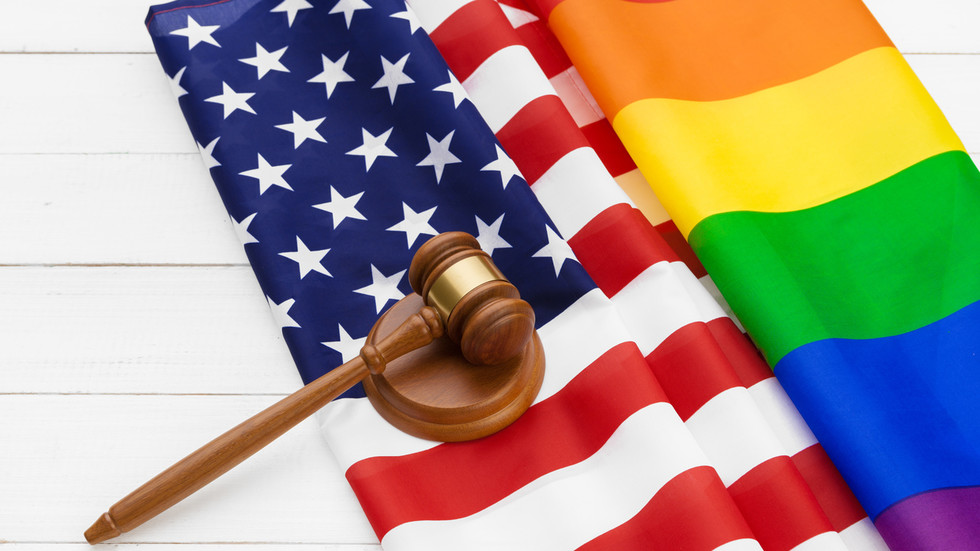The recent ruling from the Colorado Supreme Court has resulted in the dismissal of a high-profile case against Jack Phillips, a Christian baker known for his religious objections to certain cake orders. The case revolved around Phillips’s refusal to create a cake celebrating the gender transition of Autumn Scardina, a transgender woman, which led to legal action against him. In 2017, Phillips, owner of Masterpiece Cakeshop in Lakewood, Colorado, was sued by Scardina after he declined her request for a cake adorned in pink and blue, colors often associated with gender transition celebrations. The Colorado Supreme Court issued a 6-3 ruling, stating that Scardina had not fully exhausted her legal options before bringing the case before them, resulting in a dismissal without addressing the broader implications regarding free speech rights or anti-discrimination laws.
Justice Melissa Hart articulated in the majority opinion that the court would not comment on the merits of the underlying claims, focusing instead on procedural issues related to the lawsuit. Some dissenting justices expressed concern that if Phillips interpreted the ruling as a justification for his actions, it could undermine the protections afforded by the Colorado Anti-Discrimination Act. This decision highlighted the ongoing tension between individual rights and anti-discrimination protections, particularly as they relate to the baking industry and artistic expression. The ruling does not create a legal precedent but reflects the complexity of cases involving both religious freedom and the rights of LGBTQ+ individuals in public accommodations.
The response to the court’s ruling was polarized. Scardina’s attorney, John McHugh, expressed disappointment over the decision, suggesting that he would reevaluate the legal avenues available for Scardina and emphasizing a commitment to seeking justice. In contrast, Phillips’s legal representative, Jake Werner, embraced the ruling, asserting that it was high time Phillips was left alone to practice his religious beliefs without fear of legal repercussions. According to Werner, Phillips had endured legal battles for over a decade, arguing that the core issue in the conflict was not about denying service based on gender identity, but rather a refusal to endorse a message that conflicted with Phillips’s religious convictions.
Phillips has remained steadfast in his stance that creating a cake commemorating a gender transition would violate his deeply held beliefs. He clarified that his refusal was not rooted in Scardina’s identity but in the specific message the requested cake conveyed. His previous controversies, including a similar case in 2012 regarding a same-sex wedding cake, have further solidified his position as a controversial figure in the intersection of business, art, and faith. Phillips distinguishes between refusing service to individuals and refusing to create specific messages that conflict with his conscience, advocating for the idea that artistry in baking is an expressive act protected under free speech laws.
The dismissal of this case underscores broader societal debates about the balance between religious liberty and anti-discrimination protections. As courts continue to navigate these intricate dynamics, each ruling has the potential to impact similar future cases. The Colorado Supreme Court’s decision refrained from issuing a definitive stance on the intersection of these rights, neither lending strong support to Phillips’s free speech claims nor fully endorsing Scardina’s arguments under anti-discrimination protections. The lingering ambiguity surrounding the relationship between artistic expression, religious belief, and individual rights remains a critical issue in legislative and judicial deliberations across the country.
In conclusion, the Colorado Supreme Court’s dismissal of Jack Phillips’s case reflects the complexities faced in adjudicating conflicts between personal beliefs and societal norms. While Phillips may view the ruling as a vindication of his rights as a religious artist, advocates for LGBTQ+ rights see it as a missed opportunity to clarify and strengthen protections against discrimination. As legal representatives for both sides reassess their strategies, the implications of this ruling resonate far beyond the individual case, influencing the continuing discourse surrounding freedom of expression, religious liberty, and equality within the public marketplace. The case illustrates the challenges of balancing competing rights in a diverse society, and future legal battles are likely to continue shaping the landscape of civil rights in America.

